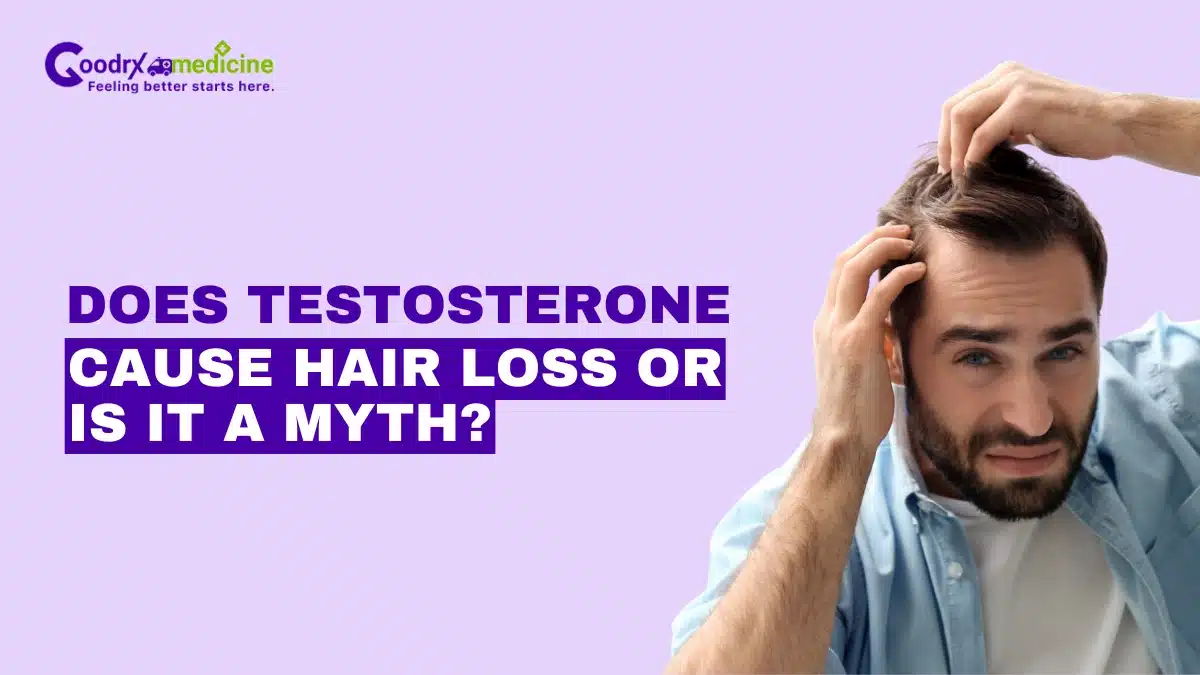Does Testosterone cause hair loss? The answer is yes, but it’s not as straightforward as it seems. Testosterone is essential for strength, vitality, and overall male health, yet its role in balding is more complicated than a direct cause.
When Testosterone is converted into a more potent form called DHT, its interaction with hair follicles can change significantly. This doesn’t happen equally in everyone, which explains why some men experience early thinning while others maintain a full head of hair for life. Genetics, age, and biology all play their part.
To truly understand Testosterone’s connection to hair loss, read on.
Can Testosterone cause hair loss?
Yes, a high level of Testosterone can cause hair loss, but not in a direct way. The process involves its conversion into a stronger hormone called Dihydrotestosterone or DHT.
DHT binds to receptors in the scalp and gradually weakens hair follicles, leading to thinning and eventual shedding. Over time, these affected follicles may stop producing visible strands altogether, resulting in pattern baldness. In other words, Testosterone itself isn’t the problem; it’s how your body reacts to it.
Interestingly, even Low Testosterone can play a role in hair changes, as imbalances in hormone levels may disrupt healthy hair growth.
Save up to 90% on your medicine bills
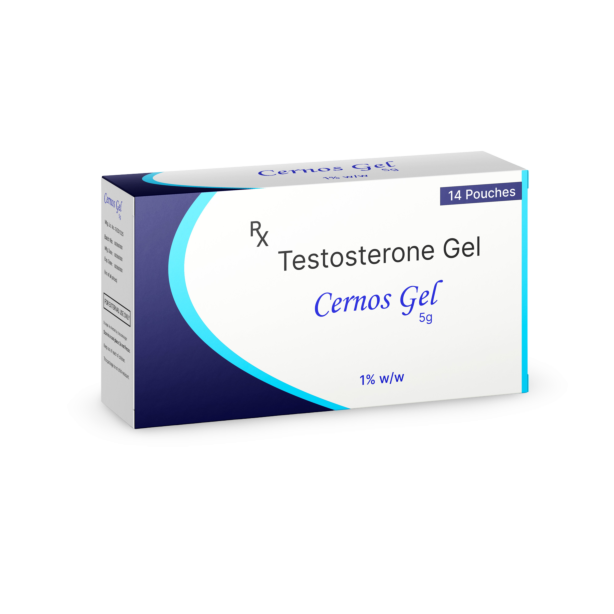
Cernos Gel 1% w/w
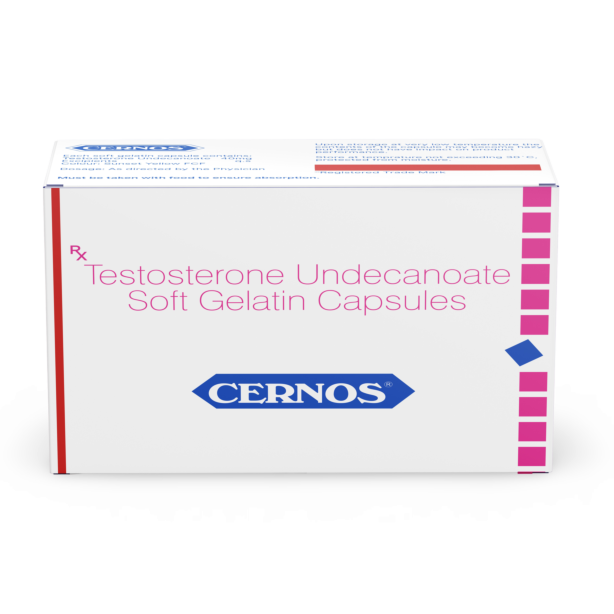
Cernos 40 mg Soft Gelatin Capsule
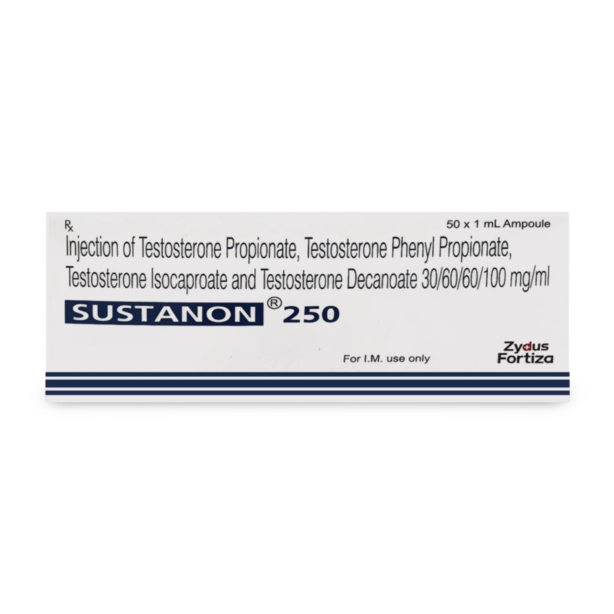
Sustanon 250 Injection
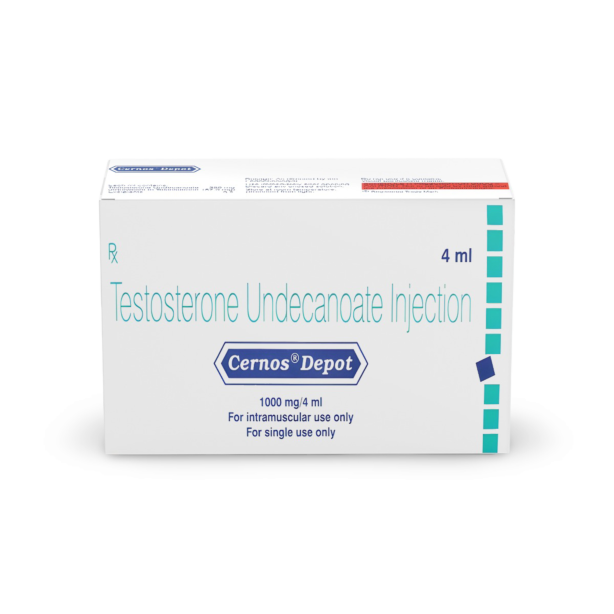
Cernos Depot 1000 mg Injection
Other factors contributing to hair loss
While DHT remains the leading cause of Male Pattern Baldness, several other factors can speed up or add to hair loss:
- Hormonal changes: Low Testosterone levels can also cause hair thinning, creating a complex relationship where both high and low levels may affect hair health differently.
- Testosterone Replacement Therapy (TRT): TRT can increase hair loss by giving your body more Testosterone to convert into DHT. However, this only affects men who already have the genes for baldness. The therapy also carries other risks, including heart problems, blood clots, sleep breathing issues, and prostate concerns.
- Medical conditions: Thyroid problems, immune system diseases like Alopecia Areata, and scalp infections can cause temporary or permanent hair loss that has nothing to do with Testosterone.
- Medications and treatments: Some medicines, including blood thinners, antidepressants, and Cancer treatments, can trigger hair loss as a side effect.
- Age-related changes: Hair roots naturally become less active as you age, leading to gradual thinning regardless of hormone levels.
- Stress and lifestyle factors: Long-term stress raises cortisol levels, messing up your hair growth cycle. Poor eating habits, insufficient sleep, and excessive physical stress cause hair loss.
Can Testosterone-related hair loss be reversed?
Yes, but only to a certain extent. The reversibility of Testosterone-related hair loss depends on several factors:
- Early intervention: Hair loss in its initial stages responds better to treatment. Once follicles completely miniaturise and stop producing hair, reversal becomes extremely difficult.
- Treatment approach: DHT blockers like Finasteride have been shown to prevent further hair loss and promote scalp hair regrowth in many men with Male Pattern Baldness. Minoxidil is often used alongside these treatments to improve blood flow to follicles, while advanced cases may benefit from hair transplant procedures. Lifestyle changes, such as better nutrition, reduced stress, and quality sleep, can also support overall hair health.
- Individual response: People respond differently to treatments. Some experience significant regrowth, while others only see stabilization of existing hair loss.
- Realistic expectations: While DHT blockers can effectively slow down hair loss, they do not provide a permanent solution. Continued treatment is usually necessary to maintain results.
When to seek professional help
Consider consulting a healthcare provider or dermatologist when:
- Hair loss accelerates suddenly or affects large areas.
- You experience other symptoms alongside hair loss (fatigue, mood changes).
- Over-the-counter treatments have not helped after 6-12 months.
- You are considering hormone therapy or prescription medications.
- Hair loss significantly impacts your confidence and mental health.
A professional evaluation can identify underlying causes and determine the most appropriate treatment strategy for you.
Conclusion
Does Testosterone cause hair loss? The answer is yes, but indirectly through its conversion to DHT, which affects genetically predisposed individuals.
Understanding this relationship helps explain why some men with High Testosterone maintain full heads of hair while others experience significant balding. Low Testosterone can also cause hair thinning.
Early intervention with appropriate treatments offers the best chance for managing Testosterone-related hair loss effectively. Working with healthcare professionals ensures safe, personalised approaches to maintaining hormonal health and hair preservation.

Frequently Asked Questions
Can low Testosterone cause Erectile Dysfunction?
Yes. Low Testosterone often contributes to Erectile Dysfunction, along with reduced sex drive, fatigue, and even hair thinning. Treating hormone imbalance through medical guidance can improve sexual performance, mood, and overall health, but lifestyle changes and proper evaluation are equally crucial for lasting results.
Does wearing hats or helmets cause more hair loss?
No. Hats or helmets don’t cause hair loss. This is a myth. Hair thinning happens mainly due to genetics, hormones like DHT, or medical conditions. External pressure on the scalp doesn’t damage follicles, so wearing headgear regularly is safe for your hair.
Do hair vitamins prevent Testosterone-related hair loss?
No. Hair vitamins can improve growth and thickness if your body lacks nutrients, but they can’t block DHT, the hormone responsible for Testosterone-related hair loss. While supplements may support healthier strands, genetic or hormonal baldness often requires medical treatments for adequate control.
Is it normal for hair loss to get worse during certain seasons?
Yes. Due to natural growth cycles, many people shed more hair in the fall and spring. This seasonal shedding is temporary and different from permanent hair loss caused by hormones like DHT. Most hair regrows, and it usually doesn’t signal a serious problem.
Can reducing Testosterone levels through diet stop hair loss?
No. Severely lowering Testosterone through diet can harm your overall health and may not stop hair loss, since even small amounts of DHT can affect sensitive follicles. Managing hair loss is safer through medical treatments rather than drastic hormonal changes.
Does exercise increase DHT and make hair loss worse?
No. Regular exercise may slightly boost Testosterone and DHT, but this increase is usually too slight to worsen hair loss. Instead, exercise improves blood flow, stress levels, and overall health, supporting hair growth and slowing thinning.
When referencing outside resources, GoodrxMedicine always provides full citations. To learn more about the measures we use to maintain the quality of our content, please review our Content Information Policy.



